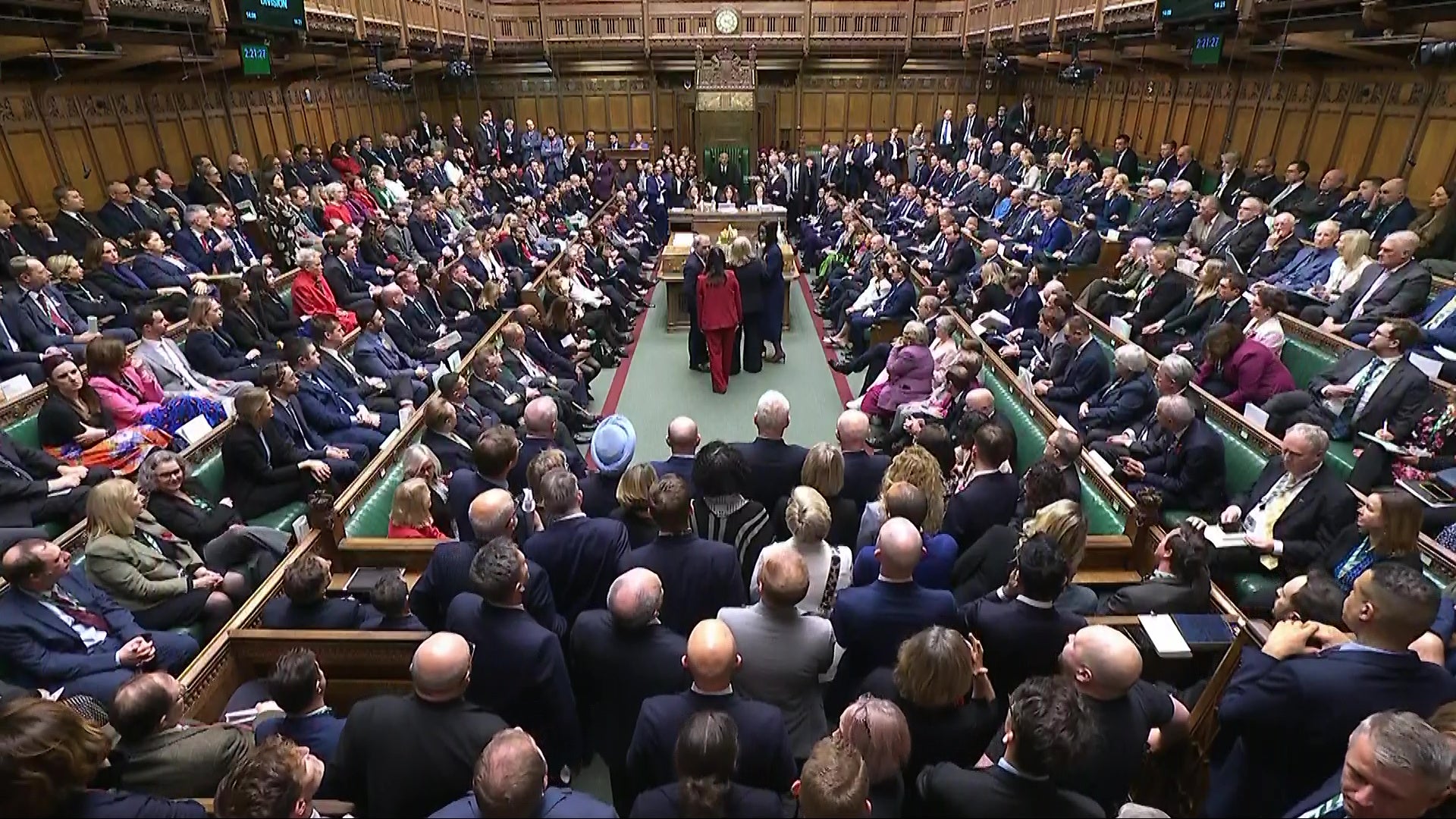More than 30 MPs who voted in favour of assisted dying could still change their minds, analysis suggests
The assisted dying bill is now scrutinised by MPs at committe stage before it returns to the Commons
At least 36 MPs who voted in favour of assisted dying have indicated that they could change their minds at a later stage, new analysis suggests.
An analysis of statements made by MPs about Friday’s vote shows that a significant number of parliamentarians suggested that their ongoing support would be conditional on how the bill stands up to scrutiny.
The bill, which allow terminally ill adults in England and Wales with a life expectancy of six months or less to seek assistance to end their lives, passed in the Commons by 55 votes. 330 MPs voted in favour of the legislation, with 275 against.
18 Labour MPs and three Conservative MPs did not vote on Friday, meaning their votes are also to play for in the next stage.
Under the proposed plans, a terminally ill adult would have to get approval from two doctors and a High Court judge before they would be helped to end their life.
With the bill now entering committee stage, MPs will get a chance to scrutinise the plans and propose any amendments. Labour MP Kim Leadbeater, who proposed the bill, has said that there is “absolutely still a lot of work to do” on the bill and that “slight changes” are part of the process.
Some MPs warned in Friday’s debate that their support was conditional on additional safeguards being put in place or parts of the bill being changed.

Sir David Davis, who backed the bill, said he was concerned that a clause within it seemed to say that doctors could suggest an assisted death as a treatment option for their patients.
Armed forces minister Luke Pollard voted for the bill but wrote to Ms Leadbeater calling for further safeguards to be added.
Labour MP for Wrexham Andrew Ranger said that letting the bill pass through to the report and committee stages would allow for amendments and “areas of possible concern to be addressed”. He said that when the bill comes back to the Commons for its third reading, likely in Spring next year, he would then “arrive at a final decision”.
Lib Dem MP for Chelmsford Marie Goldman said that her vote in favour on Friday was “by no means a guarantee of my vote for the bill at third reading”.
Fellow Lib Dem Andrew George MP said he was in principle broadly in favour of assisted dying, but that he had not reached a final decision.
In a letter to constituents, he wrote that he would carry out a study “especially in respect of the robustness of the law and the clinical judgements required to underpin its operation”. He added that, while he was not convinced that the law would put pressure on vulnerable people, he would “keep an open mind”.
On Saturday, the Association for Palliative Medicine said that there is a risk the funding needed to pay for doctors and the courts to oversee assisted dying could divert money away from care for the dying.
Labour MP Diane Abbott told the BBC that she was “very worried that vulnerable people will get swept up in the assisted dying route, when actually what they really need is access to hospice care and proper end-of-life care.”
Join our commenting forum
Join thought-provoking conversations, follow other Independent readers and see their replies
Comments
Bookmark popover
Removed from bookmarks